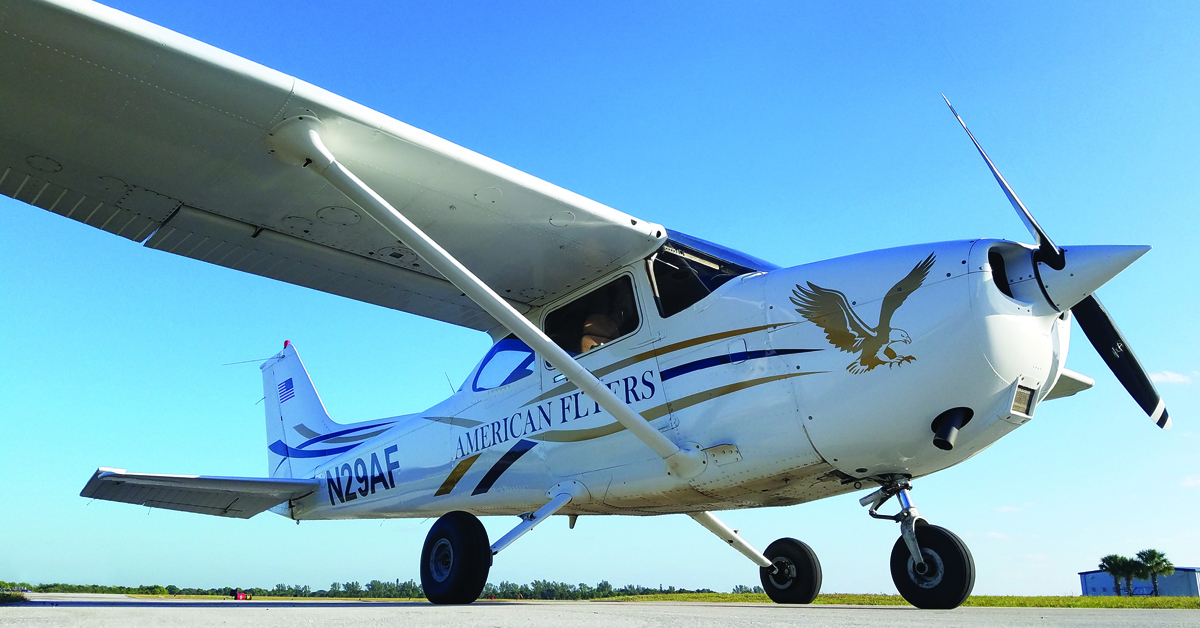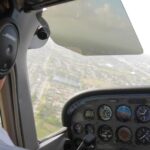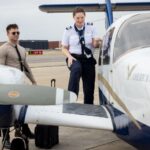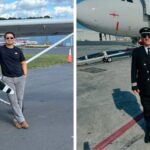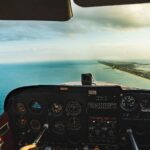I was about 17 years old when I began my search for a flight school to help me achieve my goal of becoming a professional pilot. Like many young, aspiring pilots, I started my journey with the help of my father, but we really had no idea what a “successful” flight school looked like or the questions to even ask.
As we checked out each school in and around where we lived, there were several key questions that we were looking to get answered, questions like student/instructor ratio, number and type of aircraft in the fleet, maintenance practices, and structure of the training program. These questions were the top questions every flight school was telling you to ask and easy to find online for most of them. I only found out after it was too late those were not the questions you should be asking. The question we focused on, which most wannabe pilots ask, is “what’s it going to cost me?” And when it comes to pricing, the industry has conditioned us all to ask one main question: “How much does your airplane cost per hour?”
While those questions do give you information about a flight school, we completely missed the more important part of the cost per hour questions. What we realized later is we should have been asking, “Given the experience your school has with training pilots, what is the average cost that someone spends with your school in order to complete this rating?” and “What is the average number of hours a student takes to pass their check ride for that rating?” When you ask the cost question with the second perspective, it gives you an understanding of how long and how much it is actually going to cost. It removes the focus on the cost per hour. If a flight school’s per hour for an airplane is less than another but they take twice as long, you are going nowhere fast and are going to spend more money than you anticipated.
After a long search, and many interviews, we selected a small “Mom and Pop” flight school, and I started my flight training. I was finally up in the air learning how to fly. It was exciting… I was actually flying a plane! I noticed we didn’t spend too much time on the ground going over material, which was fine by me. I really wanted to be up in the air every day flying. Each day I’d show up for my lesson, and my instructor and I would go right out to the plane and begin the preflight inspection. Later on I did realize that the cockpit makes for a terrible classroom. Although I was excited about gaining lots of flight hours, my dad and I realized that those hours translated to a higher training cost than expected.
The day finally arrived. At last, after about 80 flight hours and with just a little formal ground school, I received my sign off from my instructor and was ready to take my checkride. I was so excited I started to tell everyone I was about to get my private pilot’s license. I was excited as well as a bit nervous. I felt great about my flying skills, and my instructor felt that after questioning my knowledge during the flights that I was ready. I didn’t really know what to expect in a checkride, but hey, my instructor thinks I’m ready, so what’s to be nervous about, right?
Then I came across an older seasoned flight instructor, not from the school I was at, and shared with him my excitement. He was happy for me getting ready to take my checkride and started asking me a few questions. In seeing how ready I was for the checkride, it became very clear that I had no idea about any of the questions he was asking. After about 15 minutes, he asked a question that I’ll never forget. “How many spark plugs does your airplane have?” he asked. I had no clue. And not only that, but I had no clue about WHY I should even have a clue about that in the first place. He and I both realized rather quickly I would most likely have never passed the oral part of the checkride.
Needless to say, my spirit had been crushed, and I walked away wondering if I was even cut out to be a pilot. Yes, my flying was great after 80 hours of flight time, but my ground knowledge was non-existent. The result of all those lessons going out to the airplane with little-to-no ground training had finally come to a head. I had no business going into that checkride with my (lack of) ground knowledge.
I was distraught, broken, intimidated, frustrated. After talking it over with my dad, he recommended we go back to American Flyers to see if they could help us. With my tail between my legs, I sat across from the same salesperson that had originally told me about American Flyers and whom I had “snubbed” by choosing a different school. He was gracious, though, and with what seemed like unrealistic confidence he said, “Give us one week and we’ll have you ready for your private pilot checkride.”
After taking so long to complete my training at the other school, I just thought that was the norm, and that there was no way American Flyers would be able to get me finished in that short of a time. Fast forward six days and a lot of hard work on both my part as well as my new instructors, and I passed my checkride with “flying” colors (excuse the pun). From that point on I knew there was so much more to know about flight training than I had ever imagined.
Unfortunately, this is an all too familiar story in the industry. Because an instructor’s ability to make it to the airlines is highly dependent on the number of flight hours that they are able to accrue, the incentive for the instructor is to get up in the plane as much and as often as possible, thus getting them to the airlines more quickly. This is often coupled with the issue of a school not having a structured training program, which makes matters even worse. The situation had all the necessary ingredients for the setback I had found myself in.
As I look back at this event that took place nearly 20 years ago, I’ll never forget the lessons learned. First, ask the right questions. It’s important to know the track record of the flight school you choose. As they say, past accomplishment can be an indicator for future performance. Secondly, I did not understand the value of ground instruction. All I wanted to do was FLY, but what I realize now is that I could have saved a lot of time, money and frustration if I had dedicated myself to learning the material on the ground before getting up in the air.
I won’t bore you with the rest of my story other than to say that after my Private, I immediately rolled into an Instrument program, and then Commercial, and then the CFI academy, all with American Flyers. After seeing first-hand their structure and experience from the student perspective and how they kept to what they said and didn’t just get people in the door, I put in my application to work with wanting to stay in the flight training industry instead of becoming an airline pilot. And over the past 20 years, I’ve been a part of American Flyers where I’ve been able to share my love for flying with other people and make sure that what happened to me as a student didn’t happen to anyone else.
QUESTIONS YOU SHOULD CONSIDER WHEN LOOKING FOR A FLIGHT SCHOOL:
1. What happens on bad or poor weather days? Will you work in the simulator? Will your instructor take you up to further your education?
2. Insurance. Specifically, are you covered by the school’s insurance when you fly, or will you need to provide your own insurance?
3. Will you be able to plan your schedule out into the future or only one lesson at a time?
4. Speak to other students that you see in the school and ask them about their experience with the school.
5. Who is responsible for supporting and developing the instructors?
6. Who oversees aircraft maintenance?
7. Who is responsible for making sure that you are on the right track with your training?
8. Is the same level of support available to you on the weekends and holidays?
9. Does the school structure and scheduling meet your goals and objectives?
10. Are they scheduling for their convenience or yours?
11. How do they measure and communicate your achievements?
12. Are the courses structured or random based on the student’s needs?
13. How long has the flight school been in business?
14. Is the school licensed by the FAA to conduct flight instruction?




